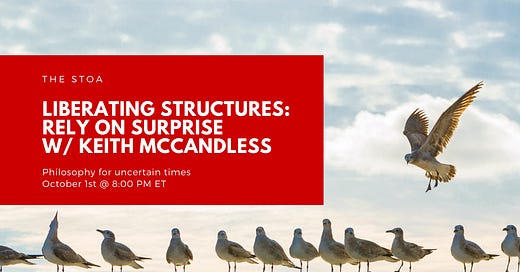Hey friends,
I received some sad news this morning from James Carse's stepdaughter: James passed away last night.
I am told he did so in the home he loved, and with the woman he loved. James was a friend of The Stoa, and he tentatively agreed to be a Sensemaker in Residence for November, pending his health concerns.
He was a wonderful person, with a wonde…
Keep reading with a 7-day free trial
Subscribe to Less Foolish to keep reading this post and get 7 days of free access to the full post archives.


